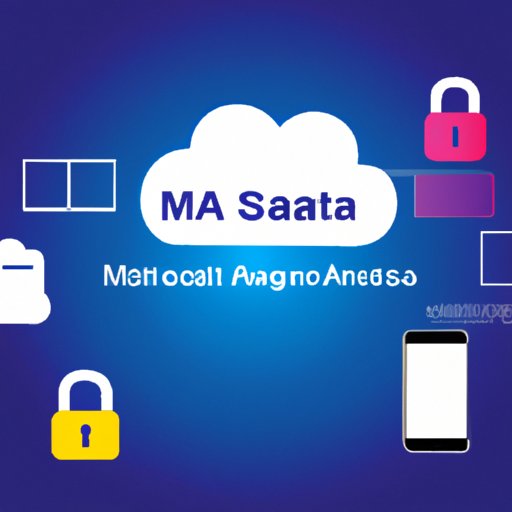Introduction
As digital technologies continue to expand, enterprises are increasingly relying on multi-factor authentication (MFA) to secure their networks and protect user data. MFA is a security measure that requires two or more independent verification methods from distinct categories of credentials – such as passwords, one-time codes, biometrics, or physical tokens – to authenticate a user’s identity. With MFA, users must present multiple forms of identification before they can access sensitive information.
What Does MFA Mean for Enterprises in the Digital Age?
In today’s digital age, enterprises are faced with the challenge of protecting valuable data and resources from malicious actors. As hackers become increasingly sophisticated in their attack techniques, traditional methods of authentication, such as usernames and passwords, have become inadequate in providing sufficient protection. This is where MFA comes in. By requiring multiple levels of authentication, MFA makes it much more difficult for unauthorized users to gain access to an enterprise’s systems and data.
Overview of Multi-Factor Authentication and its Benefits
Multi-factor authentication combines two or more factors – such as something you know (e.g., a password), something you have (e.g., a one-time code sent to your mobile device), or something you are (e.g., a fingerprint) – to verify a user’s identity. This ensures that even if one factor is compromised, the other factors will still be able to provide adequate security.
The benefits of MFA are numerous. According to a study by Forrester, “Organizations that deploy MFA reduce their risk of account takeover by 99.9% compared to those who only use passwords.” In addition, MFA also helps to simplify user experience by eliminating the need to remember multiple passwords, while still providing a high level of security.
Exploring the Role of MFA in Cloud Security
As enterprises move towards cloud-based solutions, MFA has become an indispensable tool for ensuring the security of cloud-based services and applications. By requiring users to verify their identities with multiple factors, MFA helps to ensure that only authorized users have access to sensitive data stored in the cloud.
How MFA Enhances User Authentication
One of the key benefits of MFA is that it can help to prevent unwanted access to sensitive data by enhancing user authentication. By requiring multiple forms of authentication, MFA helps to ensure that only authorized users are able to access an enterprise’s cloud-based services and applications.
An Overview of MFA Technology
MFA technology typically consists of a combination of hardware and software components. For example, an enterprise may use a hardware token, such as a USB drive, to generate one-time passwords for users to enter when logging into the system. The software component of MFA could include biometric authentication, such as facial recognition or fingerprint scanning, to further enhance security.

The Impact of MFA on Data Security
Data security is a top priority for enterprises, and MFA can play a crucial role in helping to protect valuable data. By requiring users to verify their identities with multiple factors, MFA helps to ensure that only authorized users have access to sensitive data. This can help to mitigate the risk of data breaches and other malicious attacks.
Examining the Advantages of MFA in Businesses
The advantages of MFA for businesses are numerous. According to a survey conducted by Accenture, “80 percent of organizations that adopted MFA reported improved security, and 75 percent reported improved user experience.” In addition, MFA can also help to reduce costs associated with managing user accounts, as well as improve compliance with data privacy regulations.
Conclusion
Multi-factor authentication (MFA) is a powerful security technology that can help to protect enterprises from malicious attacks and data breaches. By requiring users to verify their identities with multiple factors, MFA helps to ensure that only authorized users have access to sensitive data. Furthermore, MFA can also help to reduce costs associated with managing user accounts, as well as improve compliance with data privacy regulations.
In conclusion, MFA is a critical tool for securing data and protecting businesses in the digital age. By leveraging the power of MFA, enterprises can ensure that their data remains safe and secure.
(Note: Is this article not meeting your expectations? Do you have knowledge or insights to share? Unlock new opportunities and expand your reach by joining our authors team. Click Registration to join us and share your expertise with our readers.)
